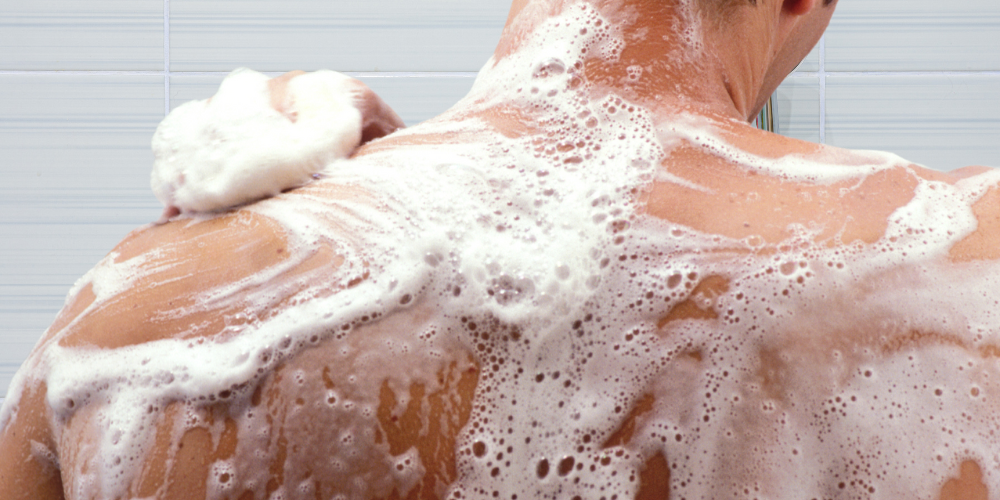
AUTHOR: FORGE CONTRIBUTOR, CASSANDRA CLARKE
For decades (maybe centuries), kids around the world have endured the same shouted order: “Go wash up! And use soap!” Half of them followed directions. The other half ended up back in the bathroom when they sat their filthy selves down and didn’t fool Mom about the soap thing.
Turns out, Mom was onto something when she made you pay better attention to your grooming ritual. Soap plays an important role not just in hygiene, but in disease control and personal appeal. How does that simple bar of cold-processed cleaning power work? Read on to find out!
What Does It Mean to Be Dirty?
This may seem obvious, but it bears digging into. “Dirty” can describe a spectrum of conditions you might shower to solve.
- Debris Dirty – Maybe you just got back from the beach and the sand was course, rough, irritating, and got everywhere. Or you worked out in the woodshop for an hour and have a layer of sawdust you don’t want to carry around. You can often fix this kind of dirty by standing in the shower and turning a circle to rinse off the mess you made. (It’s still best to use soap, though. You never know what germs have come along for the ride.)
- Grimy Dirty – The usual kind of dirty. A little debris from the day might linger, but this kind of dirty leaves you feeling like you need a shower. That’s because it doesn’t only involve a little dirt. It includes oils from your skin, grime from the air and the places you’ve been, and other substances that water rolls right off. Grab the soap, because you can’t hose this type of dirty away.
- Germy Dirty – Germy dirty happens when you go to the bathroom to read the internet. It also happens when you’ve hit a convention, grocery store, or hockey game full of walking petri dishes. Being around people and their biological functions earns you a collection of germs. Washing germs away with water doesn’t work. You have to shut them down a whole other way.
How Does Soap Work to Get You Clean?
Most varieties of grime involve a mix of ingredients, like dirt and germs and dead skin cells, but the glue that holds those together is oil. Even if that oil comes from your skin, it has the same properties as the bacon grease that resists water in the kitchen sink. That’s why rinsing off a bacon pan won’t clean it – the water can’t mix with the grease to carry it away.
Soap is the magic substance that bridges the gap between water and grease. Think of soap molecules like thumbtacks. The fatter head part is hydrophilic, which means it wants to buddy up to water molecules. The sharp bottom of the molecule is hydrophobic, which means it wants nothing to do with water and would prefer to be bros with oils and fats instead.
When you put these soap molecules into water, they float around looking for love in all the right places. The sharp tails of the soap molecules run away from water molecules – and head straight for things like viruses, bacteria, and germs. Those sharp tack-like bottoms jab themselves into the membranes that hold the germs together and tear them to pieces.
What about dirt? It turns out soap molecules like to gang up into ball-shaped gangs called micelles. These micelles often form around bits of dirt or broken-up germ, suspending them in the bubble. When you wash the soap off your hands, you also wash away the nasty stuff the micelles have trapped or the hydrophilic heads have bonded with.
And that’s not all! Soap molecules can mess with the chemical bonds that let viruses, bacteria, and other stuff cling to your skin. They don’t stick well once soap gets to them, so they float away, leaving you clean while they head down the drain.
What About Antibacterial Soap?
Believe it or not, you don’t need an antibacterial soap to get the upper hand against germs. Regular soap does just as good a job at fighting off the germs that cause illness. The FDA thinks so, too, and also adds a caution that over-the-counter antibacterial soaps can have an adverse effect on your health.
Diligent handwashing has been used as a tool for controlling the spread of disease for centuries. Just grab your bar of soap and lather up! Sing the chorus of your favorite song a few times, then rinse the soap away.
What Else Can Soap Do?
Soap isn’t going to cure your skincare woes (though using unscented soap can help you alleviate the symptoms of a fragrance allergy). It’s also not going to improve your golf swing. What it will do for you is:
- Give you the foundation for a solid skincare routine. A quality soap is the perfect foundation for your skincare routine. Not sure where to start? Turns out, we’ve got some ideas.
- Keep unnecessary germs away. No one wants to get sick. Use the ages-old way to maintain important hygiene practices every time you wash your hands or grab a shower. Every little bit counts.
- Get you really clean and help you smell like yourself. Here’s a secret your partners want you to know: Men who have a natural, clean smell have a huge appeal. You don’t have to cover it up with added fragrances. Stay clean and people will want to get close to you.
Forge On the Clean Way with Quality Cold-Pressed Soap
Go wash up, and use soap! Washing off the day is important, no matter what you got up to. Whether you want a smooth bar, an exfoliating experience, or a robust clean, it’s important to let soap do the dirty work.
Citations:
https://www.cdc.gov/hygiene/personal-hygiene/hands.html
https://www.fda.gov/consumers/consumer-updates/antibacterial-soap-you-can-skip-it-use-plain-soap-and-water
https://www.washingtonpost.com/news/speaking-of-science/wp/2017/03/20/dear-science-how-does-soap-make-things-clean/
https://medicine.yale.edu/news-article/why-soap-works/



